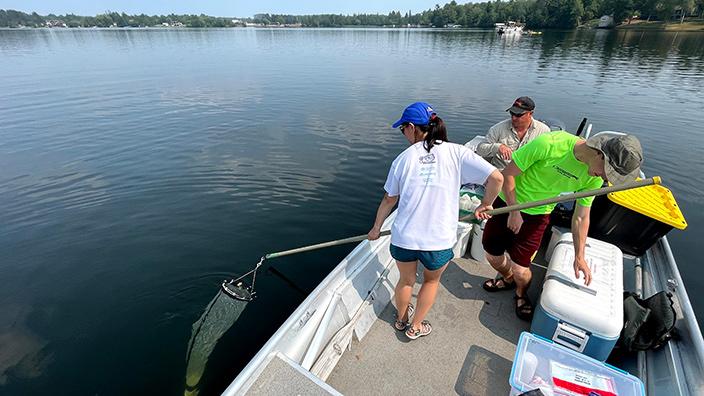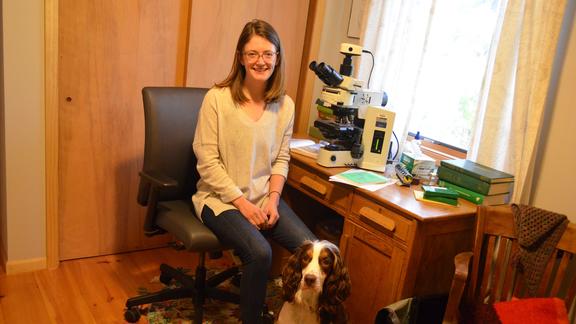Featured Services

Program Overview
A multi-disciplinary program that studies water quality, with a focus on developing solutions to manage water resource sustainably, particularly in the face of climate change and pollution concerns.
Recent Research
- Sulfate reduction demonstration projects funded via a partnership with the Minnesota Pollution Control Agency were initiated to demonstrate sulfate reduction in municipal and industrial wastewater and help Minnesota meet its wild rice standards. The treatments employ active filtration, chemical precipitation and microbes to transform sulfate to less damaging forms, and remove from the environment.
- Groundbreaking research: Forest fire impacts on lake water quality showed that lakes in burned watersheds had greater amounts of nitrogen, phosphorus and carbon nutrients, and were considerably murkier, but did not exhibit increases in algae growth. This new information will help lake and forest managers manage forested watersheds in the face of more frequent and severe wildfires under climate change.
- Trace analyses identified > 200 legacy and emerging contaminants in Lakes Superior and Huron to inform pollution prevention and treatment approaches for removing PFAS using novel sorbents, like biochar and activated carbon. The data will also inform lake management decisions.
Related News

Bottom of food web keeps aquatic scientist Elizabeth Alexson at the top of her game.

Ballast water testing lab on Lake Superior reopens; regulations to keep tiny water invaders out of Great Lakes challenged
Media Coverage
- – UMD researchers tackle how to remove invasive species inside boats – Duluth News Tribune
- – Green Visions: St. Louis River Estuary Algal Blooms – WDSE The North Radio
- – Study: Wildfire led to poorer water quality in northern Minnesota lakes – MPR News
- – New study reveals Greenwood fire’s impact on nearby lakes – Northern News Now
- – How does a forest wildfire affect water quality? – Quetico Superior Wilderness News
- – Researchers study water quality impacts following 2021 Greenwood Fire – WTIP
- – Wildfires contribute to nutrient-rich, murky water in lakes – Phys Org
- – Wildfires contribute to nutrient-rich, murky water in lakes – University of Minnesota Research Brief
- – ‘Rock snot’ continues to threaten biodiversity in many North Shore rivers and streams – WTIP
- – Wetlands were everywhere on the Great Lakes, how one project is helping save them – Milwaukee Journal Sentinal
- – Researchers in Duluth turn streams purple to help measure effectiveness of restoration – MPR News
- – Researchers studying restoration at Mission Creek using new dye technique – WDIO
- – St. Louis River water quality project launched by NRRI, others – Hometown Focus
- – New Grant To Increase Water Quality Monitoring in St. Louis River Estuary – Fox 21 Local News
- – Northern Minnesota researchers close in on sulfate pollution solution – MPR News
- – What is Blue-Green Algae? A Conversation with Dr. Chris Filstrup from NRRI – KAXE radio
- – UMD scientists study phytoplankton, the base of Great Lakes food chain – Duluth News Tribune
- – Duluth-based scientists get $3 million grant to study Great Lakes' phytoplankton – Star Tribune
- – Scientists get grant to monitor bottom of Great Lakes food chain – WDIO
- – Damming research: Study finds beavers might not be all bad for trout streams – Duluth News Tribune
- – Scientists using DNA to track invasive species – Duluth News Tribune